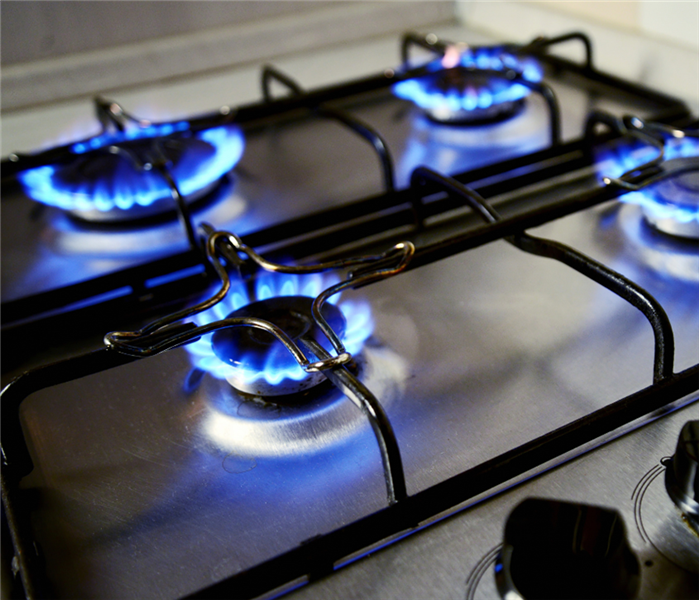Stopping Carbon Monoxide Poisoning Before It Starts | SERVPRO of Southeast El Paso
4/14/2021 (Permalink)
Carbon Monoxide is an odorless, tasteless, and colorless gas. It can cause severe health problems and even death to unsuspecting people in their homes. This deadly gas exists in combustion fumes that result from burning fuel (gas, wood, propane, etc.) in various appliances and machines. Those include stoves, fireplaces, gas ranges, lawnmowers, electric generators, cars, and more. Here are some tips to prevent CO poisoning in your Southeast El Paso Home.
- Have your heating system, water heater, and any other gas, oil, or coal-burning appliances inspected and/or serviced at least once a year by a certified professional.
- Never use gas ranges or ovens to heat your home. Also, don’t use gas camp stoves or charcoal grills indoors. Using these can cause a buildup of CO inside your home, cabin, or camper.
- Don’t use portable flameless chemical heaters (catalytic) indoors. Although these heaters don’t have a flame, they burn gas and can cause CO to build up in your home.
- Be careful when using gas-powered electric generators. Never use them in your home, basement, or garage, and keep them at least 20 feet from windows, vents, or doors.
- When buying gas equipment, be sure to check for the seal of a national testing agency.
- Make sure to vent gas appliances properly:
- Indoor vent pipes should go up slightly as they go toward the outdoors. Doing this will help prevent CO or other gases from leaking if the joints or pipes are not adequately tightened or affixed.
- Never patch a vent pipe with tape, gum, or anything else. This kind of patch can make CO build up in your home.
- Keep the vents for the stove, fireplace, dryer, and furnace clear of snow during and after a snowstorm.
- Have your chimney checked for soot, debris, and corrosion at least once a year. Hire a chimney sweep to clean your chimney annually.
- When the fireplace is in use, open the flues. Close your fireplace or damper only when the fire is completely out.
- Never idle your vehicle inside a garage that’s attached to the house or living space, even if you leave the door open. Have a mechanic inspect your vehicle’s exhaust system once a year to prevent CO build-up.
- If you drive a vehicle with a tailgate — when opening the tailgate, open vents or windows to make sure the air is moving through your car. If only the tailgate is open, CO from the exhaust will pull into the car.
- Install CO alarms in your home.




 24/7 Emergency Service
24/7 Emergency Service
